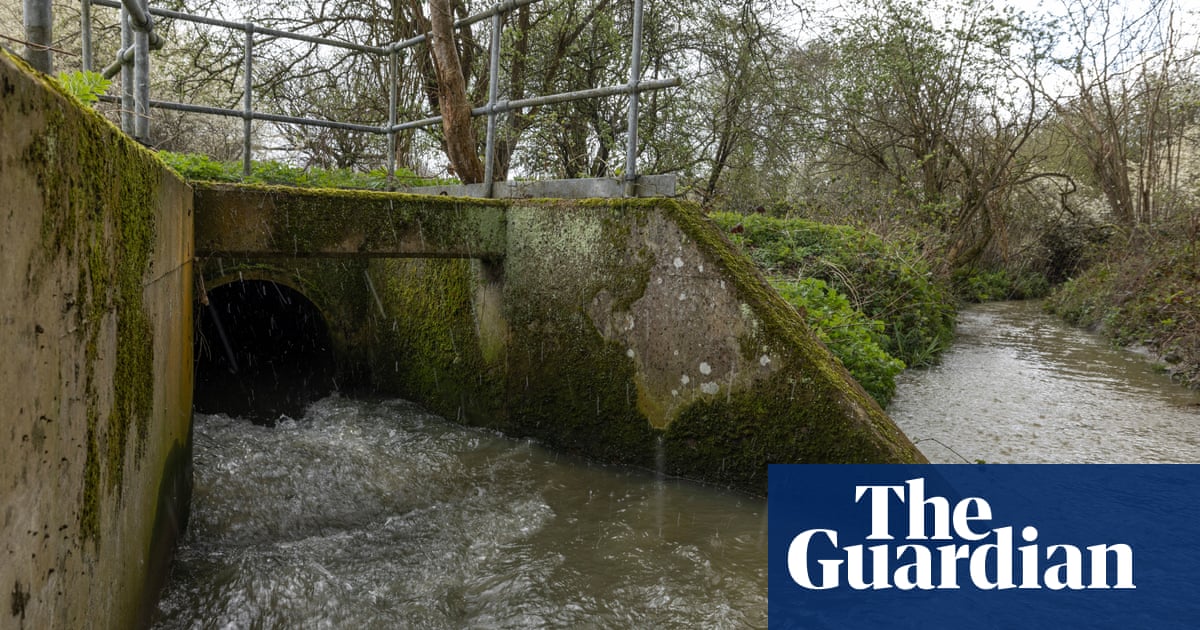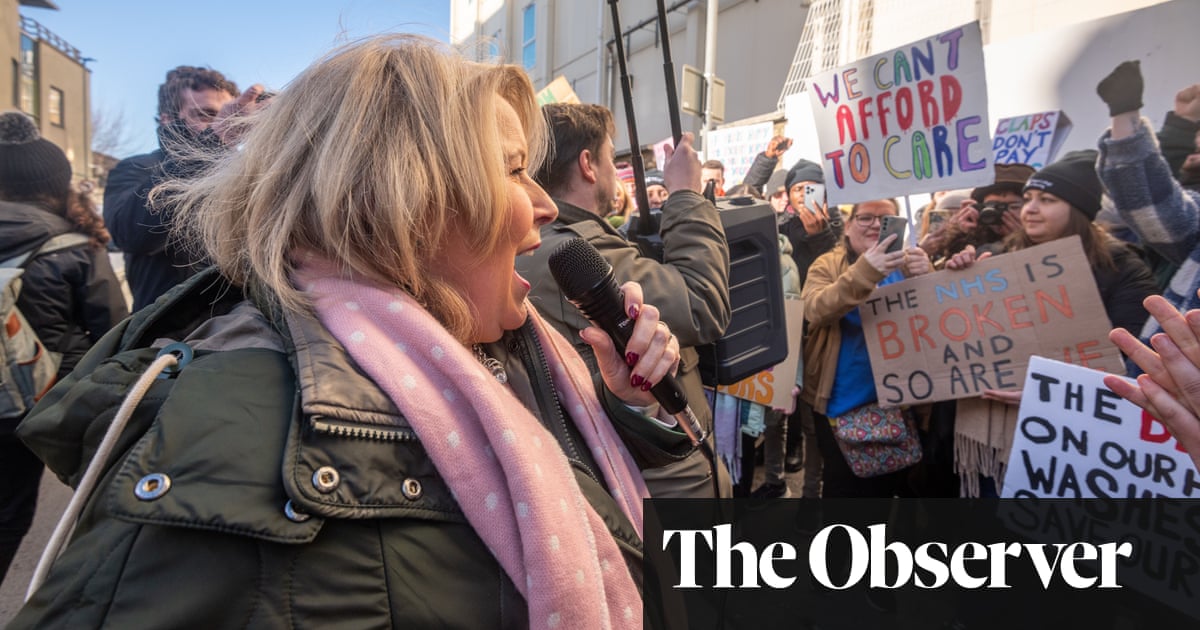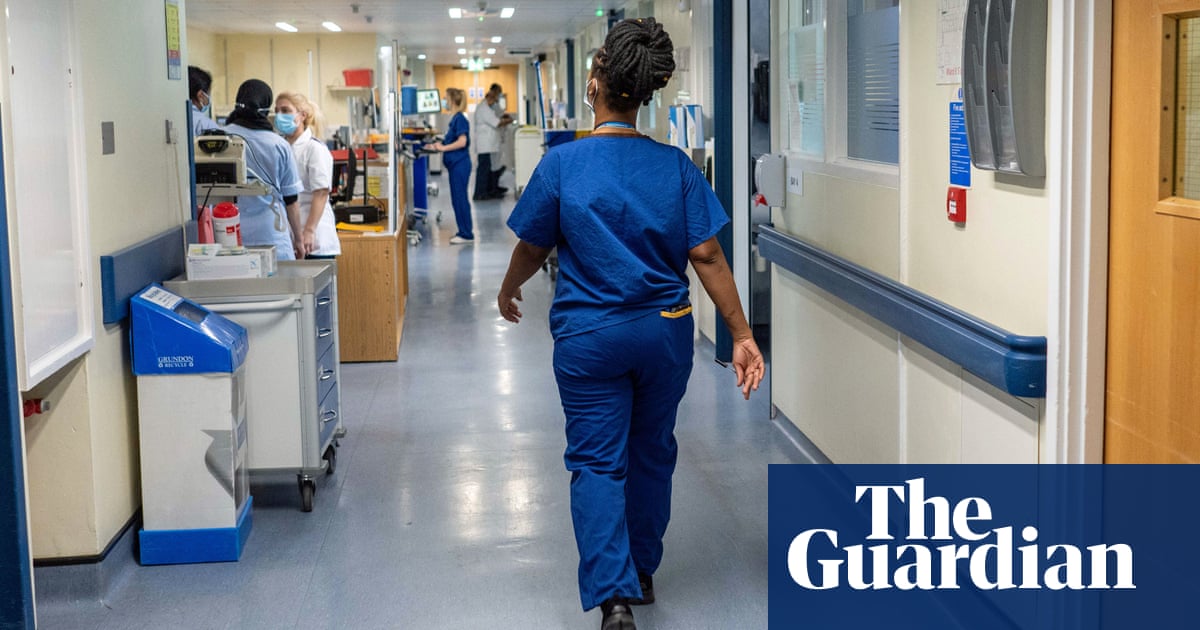
The government is facing a backlash from a broad range of the public over the 1% pay rise offered to NHS workers in England in the wake of the pandemic, as it emerged that the vast majority of voters believe the increase is too low.
With senior Tories already predicting that the government will be forced to rethink the offer, a poll for the Observer revealed that 72% of the public believe the pay deal should be more generous. The Tories are also facing a backlash from their own supporters, as the Opinium poll found a clear majority of Conservative voters (58%) believe the increase is too low. More than a third of the public (35%) said they were angry about the offer.
It came as Rishi Sunak was accused of delivering a budget that, in effect, cut the pay of some nurses by hundreds of pounds. Newly qualified nurses would face a real-terms pay cut of £307 over the next two years, according to Anneliese Dodds, the shadow chancellor. Labour said the figure reflected a £7.5bn council tax rise, a freeze in the income tax personal allowance and rising inflation.
Labour will vote against the decision to freeze income tax thresholds this week, warning that workers and families should not be asked to repair the economic damage of the pandemic before big business. Under current plans, a major increase in corporation tax is due in 2023, a year after a freeze in income tax thresholds. The freeze will pull 1.3 million people into paying tax and create another million higher-rate taxpayers over the next five years.
After private concerns were raised with the Treasury, many MPs now believe the 1% offer will be revisited when the NHS pay review bodies recommend salary levels for health service staff in May. A government document shared with Tory MPs states: “In late spring, we expect the independent pay review bodies to issue their report. We will consider their recommendations carefully.”
Stephen Dorrell, a former Tory health secretary, joined those criticising the pay offer. “It’s unimaginative,” he said. “It doesn’t respond to the views in the health service. It doesn’t respond to public views.”
He also said care workers had been left out. Dan Poulter, a former Conservative health minister, called on ministers to accept the pay review bodies’ recommendations. “For me, this is, from a moral perspective, the wrong time to be applying pay restraint,” he said.
Anger has been growing over the government’s pay proposal. Unison has called for the public to parody the “clap for carers” support last year by joining a slow handclap on Thursday at 8pm to protest against the 1% figure. NHS Providers, which represents trusts in England, said the government had already agreed to a pay rise of 2.1% for NHS workers for the next year as part of increases to health service spending.
Dodds said Sunak had been “caught hiding the pain in the small print” of the budget. “The chancellor has turned his back on our NHS heroes before the crisis is even over, repeatedly hitting their pockets,” she said. “His budget has led to the absurd situation where a newly qualified nurse is over £300 worse off – while some large companies will be able to write off swimming pools as ‘super deductions’.”
The 72% of voters wanting to see a higher pay deal for the NHS reflects the strength of public feeling. The figure is higher than the number of people who thought Dominic Cummings should have resigned (68%) over his lockdown trip to Barnard Castle.
Increasing salaries for NHS staff comes second among the public’s top priorities for government spending, with 40% selecting it. It was second only to improving NHS and social care services, which was selected by 61%. A small majority (51%) said they would support nurses going on strike over the pay rise, compared with 36% who would oppose it.
A government spokesperson said: “Over one million NHS staff continue to benefit from multi-year pay deals agreed with trade unions, which have delivered a pay rise of over 12% for newly qualified nurses and will increase junior doctors’ pay scales by 8.2%.
“Pay rises in the rest of the public sector will be paused this year due to the challenging economic environment, but we will continue to provide pay rises for NHS workers, on top of a £513m investment in professional development and increased recruitment. That’s with record numbers of doctors and 10,600 more nurses working in our NHS, and with nursing university applications up by over a third. The independent pay review bodies will report in late spring and we will consider their recommendations carefully when we receive them.”
Opinium polled 1,140 people online on 5-6 March.












